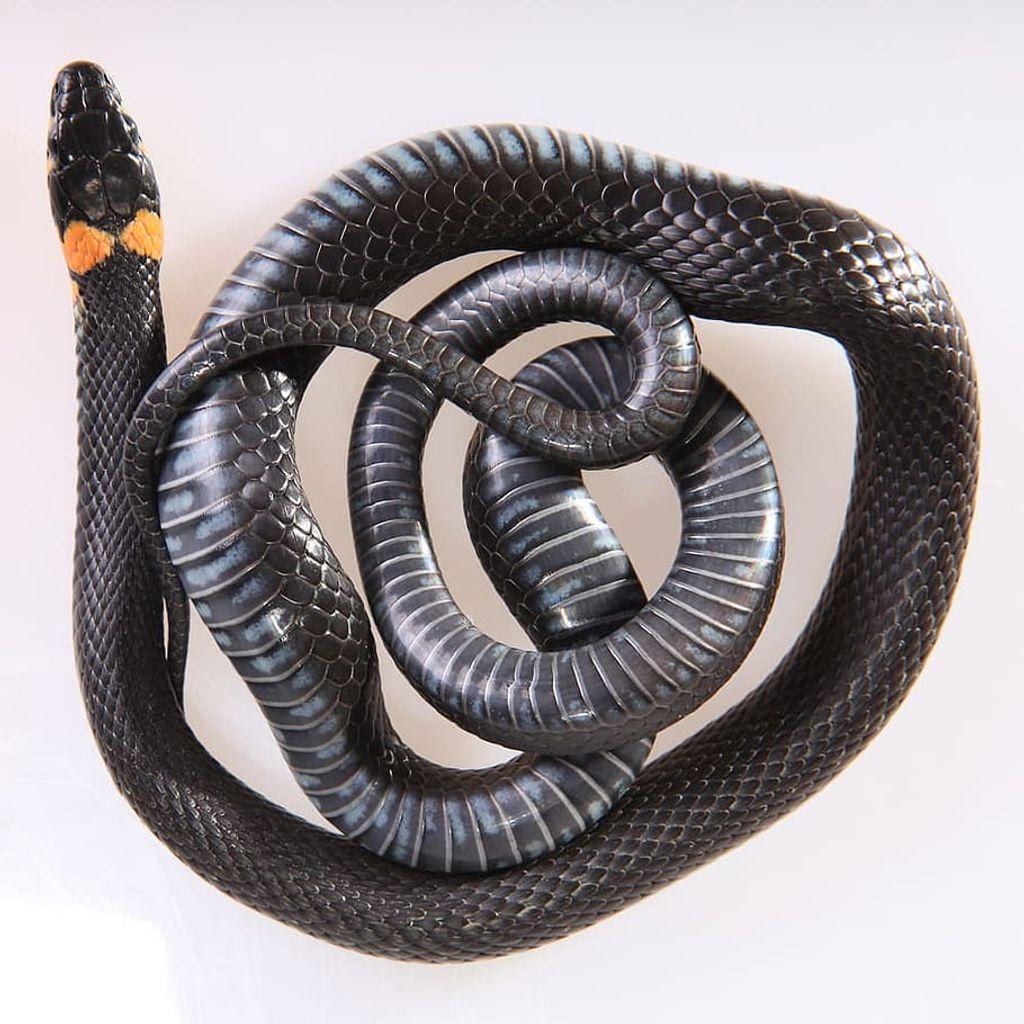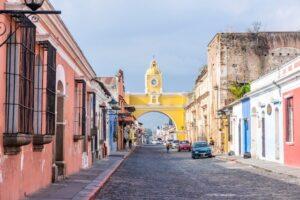These are the dangerous animals in Cozumel
Cozumel, a beautiful island in Mexico, is known for its stunning beaches and vibrant marine life. However, it’s important to be aware of the dangerous animals that inhabit the island. From venomous snakes to deadly insects and aggressive wildlife, Cozumel has its fair share of potential threats. In this article, we will explore the various dangerous animals in Cozumel and provide key takeaways to help you stay safe during your visit.
Key Takeaways
- Research and familiarize yourself with the dangerous animals in Cozumel before your trip.
- Be cautious and avoid contact with venomous snakes, such as the Fer-de-Lance, Coral Snake, and Eyelash Viper.
- Take precautions when swimming or diving to avoid encounters with dangerous marine life like Lionfish, Moray Eels, and Box Jellyfish.
- Protect yourself from deadly insects like the Bullet Ant, Scorpion, and Assassin Bug by wearing appropriate clothing and using insect repellent.
- Exercise caution when encountering aggressive wildlife such as Coatis, Crocodiles, and Wild Boars, and maintain a safe distance.
The Venomous Snakes of Cozumel

The Fer-de-Lance
The Fer-de-Lance is one of the most dangerous snakes in Cozumel. It is highly venomous and can deliver a powerful bite. The snake is known for its aggressive behavior and should be avoided at all costs. If you encounter a Fer-de-Lance, it is important to stay calm and slowly back away. Do not attempt to handle or provoke the snake. It is recommended to have backpacker insurance companies that cover medical expenses in case of a snakebite.
The Coral Snake
The Coral Snake is one of the venomous snakes found in Cozumel. It has bright colors of red, yellow, and black bands that serve as a warning to potential predators. The Coral Snake is highly venomous and its bite can be deadly. It is important to exercise caution and avoid contact with this dangerous snake.
The Eyelash Viper
The Eyelash Viper is one of the venomous snakes found in Cozumel. It is known for its vibrant colors and distinctive scales. This snake is relatively small, with an average length of 2 feet. The Eyelash Viper is arboreal, meaning it spends most of its time in trees. It is a nocturnal hunter, preying on small mammals and birds. Despite its venomous bite, the Eyelash Viper is not considered a significant threat to humans. However, it is important to exercise caution and avoid disturbing or provoking this snake if encountered in the wild.
Dangerous Marine Life in Cozumel
The Lionfish
The Lionfish is one of the most dangerous marine creatures in Cozumel. It is known for its vibrant colors and venomous spines. The venom of the Lionfish can cause extreme pain, swelling, and even paralysis. If you encounter a Lionfish while diving or snorkeling, it is important to keep a safe distance and avoid touching it. In case of a Lionfish sting, seek medical attention immediately. Remember to always prioritize your safety and consider having SafetyWing insurance for any unexpected emergencies.
The Moray Eel
The Moray Eel is one of the dangerous marine creatures found in Cozumel. It is known for its long, snake-like body and sharp teeth. These eels can grow up to 10 feet in length and are often found hiding in crevices or coral reefs. While they are not aggressive towards humans, it is important to exercise caution when swimming near their habitats. It is recommended to avoid touching or provoking the Moray Eel to prevent any potential harm. If you encounter a Moray Eel while diving or snorkeling, it is best to maintain a safe distance and observe them from afar.
The Box Jellyfish
The Box Jellyfish is one of the most dangerous marine creatures found in Cozumel. It is known for its translucent bell-shaped body and long tentacles. The venom of the Box Jellyfish can cause severe pain, skin irritation, and in some cases, even death. It is important to exercise caution when swimming in areas where Box Jellyfish are known to inhabit. If stung by a Box Jellyfish, it is crucial to seek immediate medical attention. SafetyWing insurance can provide coverage for medical expenses in case of an emergency.
Cozumel’s Deadly Insects

The Bullet Ant
The Bullet Ant is one of the most dangerous insects in Cozumel. It is known for its excruciatingly painful sting, which has been compared to being shot by a bullet. The ant gets its name from this intense pain, which can last for up to 24 hours. The Bullet Ant is found in the rainforests of Cozumel and is known for its aggressive behavior. It is important to avoid disturbing their nests or provoking them, as they will defend themselves fiercely. If you encounter a Bullet Ant, it is best to keep your distance and not attempt to handle or touch it. In case of a sting, seek medical attention immediately.
The Scorpion
Cozumel is home to several species of scorpions, including the highly venomous Centruroides gracilis. These scorpions are typically found in dark and damp areas such as caves and crevices. While encounters with scorpions are rare, it is important to exercise caution when exploring these environments. If stung, seek medical attention immediately.
The Assassin Bug
The Assassin Bug is one of the deadly insects found in Cozumel. It is known for its stealthy hunting techniques and potent venom. This bug is a member of the Reduviidae family and is commonly found in tropical regions. The Assassin Bug is a small insect, measuring around 1 to 1.5 inches in length. It has a slender body and long legs, which help it to move quickly and silently. The bug is named for its predatory behavior, as it preys on other insects and feeds on their blood. Its bite can be painful and may cause allergic reactions in some individuals. To avoid encounters with the Assassin Bug, it is recommended to wear protective clothing and use insect repellent when exploring the outdoors in Cozumel.
The Aggressive Wildlife of Cozumel

The Coati
Coatis are a common sight in Cozumel, but they can be aggressive if provoked. It’s important to keep a safe distance and avoid feeding them. They are known to carry diseases such as rabies, so it’s best to admire them from afar. If you encounter a coati, stay calm and slowly back away. Caution is key when dealing with these wild animals.
The Crocodile
The crocodile is one of the most dangerous animals in Cozumel. It is known for its aggressive behavior and powerful jaws. Crocodiles can grow up to 20 feet long and weigh over 2,000 pounds. They are excellent swimmers and can move quickly both on land and in water. Caution should be exercised when near crocodile habitats to ensure personal safety. It is important to remember that encountering a crocodile in the wild can be extremely dangerous. If you come across a crocodile, it is best to keep a safe distance and avoid any sudden movements. Stay calm and slowly back away from the animal. If you are attacked by a crocodile, fight back using any available means to defend yourself. Remember, prevention is key when it comes to avoiding dangerous encounters with crocodiles.
The Wild Boar
Cozumel is home to a variety of aggressive wildlife, including the Coati, the Crocodile, and the Wild Boar. These animals can pose a threat to both locals and tourists if not approached with caution. The Coati, also known as the Mexican raccoon, is a curious and intelligent creature that can become aggressive if it feels threatened. It is important to keep a safe distance and avoid feeding or provoking them. Crocodiles are another dangerous species found in Cozumel’s mangroves and lagoons. They are known for their powerful jaws and can be highly territorial. It is crucial to stay away from their habitat and never attempt to feed or approach them. Lastly, the Wild Boar, also known as the feral pig, can be found in the forests of Cozumel. They are known for their aggressive behavior and can become dangerous if they feel cornered or provoked. It is best to admire these animals from a safe distance and avoid any direct contact.
Conclusion
In conclusion, Cozumel is home to a variety of dangerous animals that visitors should be aware of. From venomous snakes to aggressive crocodiles, the island poses certain risks to those who venture into its wilderness. It is important for tourists to take necessary precautions and exercise caution when exploring the natural beauty of Cozumel. By staying informed, following safety guidelines, and seeking guidance from local experts, visitors can enjoy a safe and memorable experience on the island. Remember, while Cozumel offers breathtaking landscapes and unique wildlife encounters, it is crucial to prioritize personal safety and respect the natural habitat of these animals. Stay alert, stay safe!
Frequently Asked Questions
Are there any venomous snakes in Cozumel?
Yes, Cozumel is home to several venomous snakes, including the Fer-de-Lance, Coral Snake, and Eyelash Viper.
What should I do if I encounter a venomous snake?
If you encounter a venomous snake in Cozumel, it is important to stay calm and slowly back away. Do not attempt to touch or provoke the snake.
Is it safe to swim in Cozumel waters?
Yes, it is generally safe to swim in Cozumel waters. However, it is important to be cautious of dangerous marine life, such as lionfish, moray eels, and box jellyfish.
What precautions should I take when swimming in Cozumel?
When swimming in Cozumel, it is recommended to avoid touching or stepping on coral reefs, as they can cause cuts and abrasions. Additionally, be aware of your surroundings and avoid areas with strong currents.
Are there any deadly insects in Cozumel?
Yes, Cozumel is home to deadly insects such as the Bullet Ant, Scorpion, and Assassin Bug. It is important to take precautions to avoid bites or stings.
What should I do if I get bitten or stung by a deadly insect in Cozumel?
If you get bitten or stung by a deadly insect in Cozumel, it is important to seek medical attention immediately. Do not attempt to treat the bite or sting on your own.




